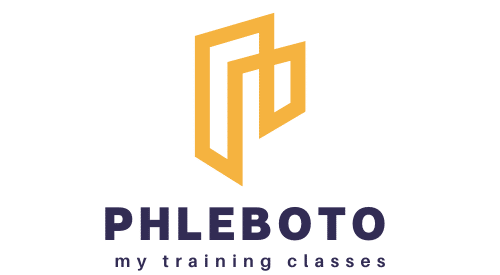What’s the Role of Sports in Promoting Social Inclusion Among Special Needs Populations?

Sports are a universal language that transcends diverse cultures and societies. They have the power to unite people, irrespective of their physical, social, or intellectual constraints. Inclusion, a fundamental principle in any society, speaks volumes about the importance of accepting everyone, regardless of their distinct differences. Now, imagine the power of sport, combined with the principle of inclusion – it becomes a potent tool, especially for special needs populations.
In this article, we’ll delve deep into the role of sports in promoting social inclusion among individuals with disabilities, how it can improve their health, and the steps that can be taken to foster greater participation in sports activities.
A lire également : What are effective strategies for the development of grassroots sports in rural areas?
The Power of Sports for Individuals with Disabilities
Sport, when seen as more than a game or recreational activity, has the potential to change lives. It’s not just about nurturing athletic prowess; it’s about the physical and intellectual development of an individual. For those with disabilities, sports become a platform to showcase their abilities, rather than their disabilities.
Physical activity and sport participation for children and adults with disabilities have numerous benefits. Let’s discuss these benefits in detail.
En parallèle : How can technology assist in the early detection and prevention of overuse injuries in young athletes?
Physical Health Improvement: Regular participation in sports can improve overall health, reduce the risk of chronic diseases, and help maintain a healthy weight. For people with disabilities, this also includes improved flexibility, balance, endurance, and strength.
Mental Health Enhancement: Physical activity can alleviate symptoms of depression and anxiety, boost self-esteem, and improve mood and overall mental health. This is especially important for individuals with disabilities who might struggle with such issues.
Social Skills Development: Participating in sports allows individuals with disabilities to interact with others, develop friendships, and enhance their social skills. It teaches them teamwork, cooperation, and communication – skills necessary for social inclusion.
Promoting Social Inclusion through Sports
Sports can be a powerful catalyst for social inclusion. They offer a platform where individuals with disabilities can compete on equal terms with others. But how exactly do sports promote social inclusion?
Breaking Down Barriers: Sports can challenge stereotypes associated with disability. It can change the perception of society towards individuals with special needs, viewing them as athletes rather than people with disabilities.
Creating a Sense of Belonging: Participating in sports clubs or teams gives individuals with disabilities a sense of community. It creates an environment where they can feel accepted and included.
Building Self-confidence: Through sports, individuals with disabilities can build their self-confidence. Achieving sporting goals can instil a sense of accomplishment and boost their self-esteem, making them more confident in social situations.
Encouraging Participation in Sports
While the benefits of sports for individuals with disabilities are evident, there are still obstacles hindering their full participation. Here are some strategies to encourage increased involvement.
Accessibility: Sports facilities and programs need to be accessible for everyone. This means providing suitable equipment, qualified coaches, and creating an environment conducive to the participation of individuals with disabilities.
Awareness: Raising awareness about the benefits of sports for individuals with disabilities can encourage participation. This can be done through promotional campaigns, community events, and education programs.
Support: Encouraging participation in sports for individuals with special needs requires support not only from their families but also from the wider community. This might include financial support for adaptive sports equipment or psychological support to overcome fears or insecurities.
The Role of Sports in Personal Development
Sports can play a vital role in the personal development of individuals with disabilities. It can foster a sense of empowerment, self-reliance, and resilience, which are key ingredients for personal growth.
Skill Development: Sports can enhance various skills – physical, cognitive, and social. It can improve motor skills, problem-solving abilities, and decision-making, contributing to the overall development of an individual.
Resilience Building: Overcoming challenges in sports can instil a sense of resilience in individuals with disabilities. It can teach them to face setbacks with courage and determination.
Empowerment: Lastly, sports can empower individuals with disabilities. Achieving success in sports can make them feel competent and increase their self-efficacy, leading to greater independence and empowerment.
Inclusion and sports go hand in hand. Together, they can change the narrative around disability, shifting from a deficit-focused approach to one that celebrates abilities and potential. Sports have the power to promote equality, improve health, and foster social inclusion. They can create an environment where individuals with disabilities are not sidelined, but are active participants, seen and valued for their strength and determination. It’s time we harness this power and make sports accessible and inclusive for all.
Enhancing Social Inclusion through Unified Sports
Unified sports, a concept introduced by the Special Olympics, refers to the integration of individuals with and without disabilities on the same team. This approach plays a crucial role in promoting social inclusion, fostering mutual respect, and dispelling misconceptions about persons with disabilities.
Shared Experiences: Participating in unified sports allows individuals with and without disabilities to share experiences, fostering a deeper understanding and acceptance of each other. Shared experiences on the field can build friendships off the field, promoting social inclusion.
Promoting Equality: Unified sports are not about segregating individuals based on their abilities or disabilities but about promoting equality. This approach asserts that everyone, irrespective of their disability, has the right to participate in sports activities.
Combating Stereotypes: Unified sports provide an opportunity to challenge stereotypes associated with intellectual and physical disabilities. It allows individuals with disabilities to display their skills and abilities, altering perceptions, and promoting acceptance.
Community Involvement: Unified sports encourage community involvement. Families, friends, and the wider community can engage either as spectators, volunteers, or active participants. This increased involvement promotes a more inclusive society and a better understanding of persons with disabilities.
Impact of Physical Education and Sports Programs for Special Needs
Physical education and sports programs designed explicitly for individuals with special needs can have a significant impact on their lives. These specialized programs can cater to the unique needs of these individuals, ensuring their active and meaningful participation in sports activities.
Tailored Activities: Physical education programs can offer activities tailored to the abilities of individuals with disabilities. Such specialized activities ensure that everyone participates, thereby enhancing their physical fitness and promoting social inclusion.
Skill Acquisition: These programs can help individuals with special needs acquire various skills. From basic motor skills to more complex abilities, these programs can foster the physical, cognitive, and social development of individuals with disabilities.
Inclusion in Schools: Schools have a crucial role to play in promoting inclusion in sports. Integrating physical education and sports into the curriculum for children with special needs can encourage their active participation, fostering a sense of belonging and promoting social inclusion.
Conclusion
In conclusion, sports serve as a powerful means of promoting social inclusion among special needs populations. The shared experiences resulting from physical activity help break down barriers, promote equality, and foster a sense of community. Sports can shift the focus from disability to ability, celebrating the potential of every individual, regardless of their physical or intellectual constraints.
From unified sports to specialized physical education programs, various initiatives can encourage the active participation of persons with disabilities in sports activities. It’s time that we, as a society, embrace the power of sports and foster an environment that is not only inclusive but also celebrates diversity.
In the words of the Special Olympics, "Let me win. But if I cannot win, let me be brave in the attempt." Let’s encourage everyone to be brave in their attempts and ensure everyone gets a fair chance at winning, irrespective of their abilities or disabilities. Together, we can make social inclusion not just an abstract concept but a lived reality.
